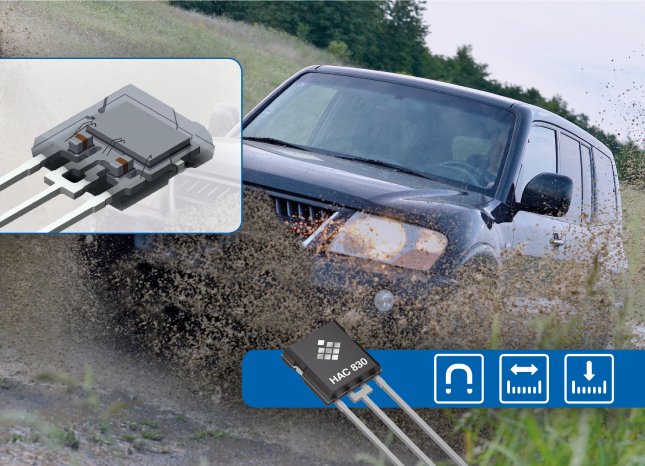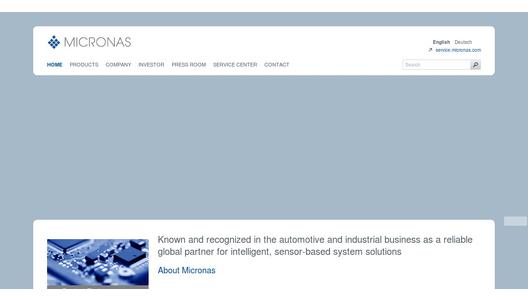Micronas (SIX Swiss Exchange: MASN), known and recognized in the automotive and industrial business as a reliable global partner for intelligent, sensor-based system solutions, today announces the first device of its for many years successful HAL 8xy Hall-effect sensor portfolio with integrated capacitors. The HAC 830 combines the precise and robust functionality of the HAL 83x family with decoupling capacitors integrated into a tiny 3-pin TO92UP package.
Based on its proven CMOS technology and designed for junction temperatures of up to 170 °C, the HAC 830 contains the intrinsic benefits of the HAL 83x family, such as highest accuracy and temperature stability for offset and sensitivity under harsh environmental conditions. Thanks to the two 100 nF integrated capacitors, this sensor achieves an ESD level up to 8 kV and meets all stringent EMC requirements, such as bulk current injection (BCI). The HAC 830 is rated class A for radiated immunity BCI tests up to 300 mA according to ISO 11452-4 (open loop) and PSA B21-7110-C (closed loop) standards.
"Over the last 15 years our customers have showed confidence in our HAL 8xy linear Hall sensor family by ordering more than one billion of these sensors", explains Dirk Behrens, Vice President Automotive at Micronas. "Our new HAC 830 with integrated decoupling capacitor brings our customers a new range of benefits for their designs. When used in PCB-free applications such as throttle valve or turbo charger, the HAC 830 not only increases EMC performance but also improves reliability and reduces module costs. Due to its TO92UP package, the HAC 830 is the smallest sensor with integrated capacitors on the market thus offering much more design flexibility where space requirements are essential criteria."
The TO92UP can be welded or soldered directly to a leadframe, a connector or a terminal, eliminating the need for a printed circuit board (PCB), thus reducing the total system size and cost. Furthermore, by using fewer external components and lowering the number of solder-joints, the overall system long-term reliability is significantly improved.
The HAC 830 is qualified according to the AEC-Q100 automotive standard and has passed stringent validation test conditions, such as vibration, high pointcast force on package surface and long exposure to ambient temperatures up to 150 °C. According to Micronas' commitment to protect the environment, TO92UP is realized as fully RoHs-compliant package.
Samples of the HAC 830 are available as of today. For evaluation and fast integration into customer applications, Micronas offers a special programming board, and the required software is provided free of charge.
Start of production is planned for the beginning of 2015.
Micronas will present the HAC 830 from November 11 to 14 at the Electronica exhibition in Munich (hall A6, booth 213).


